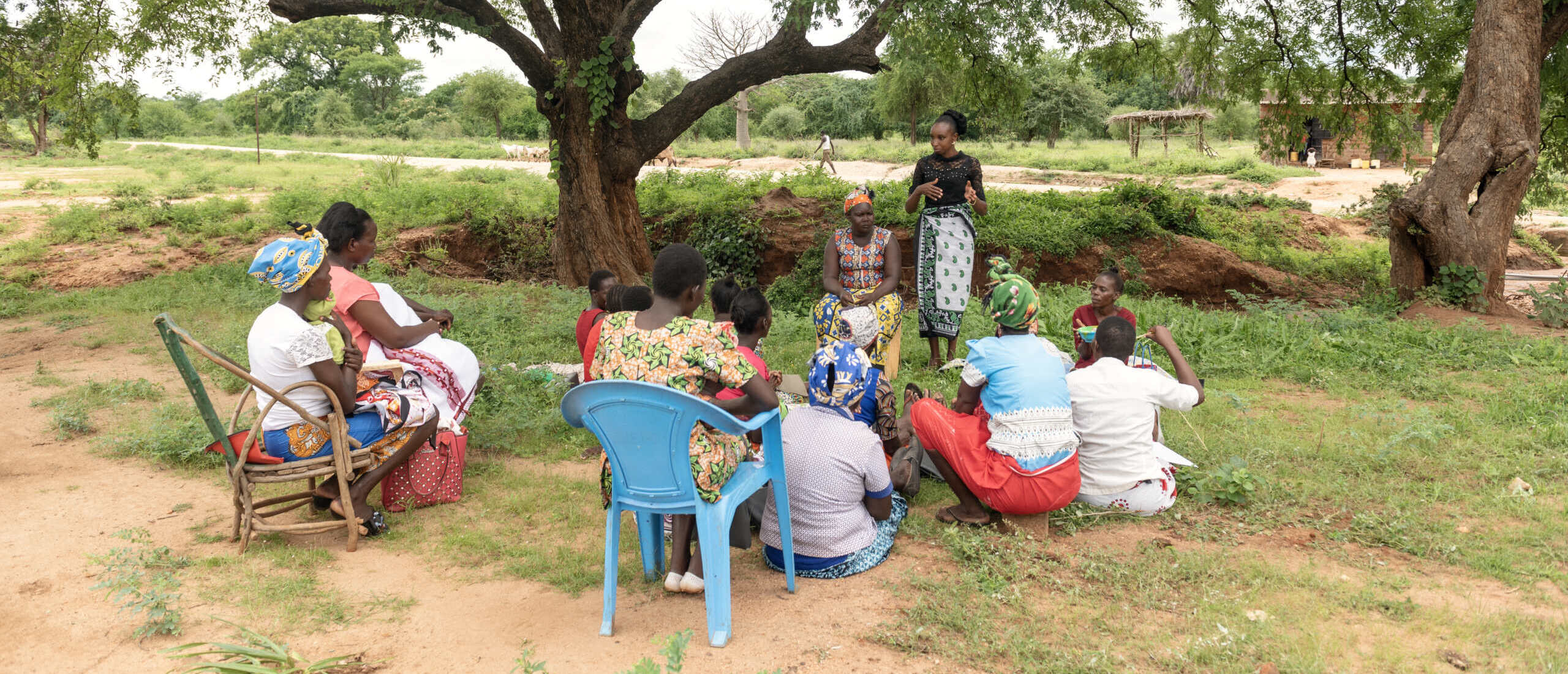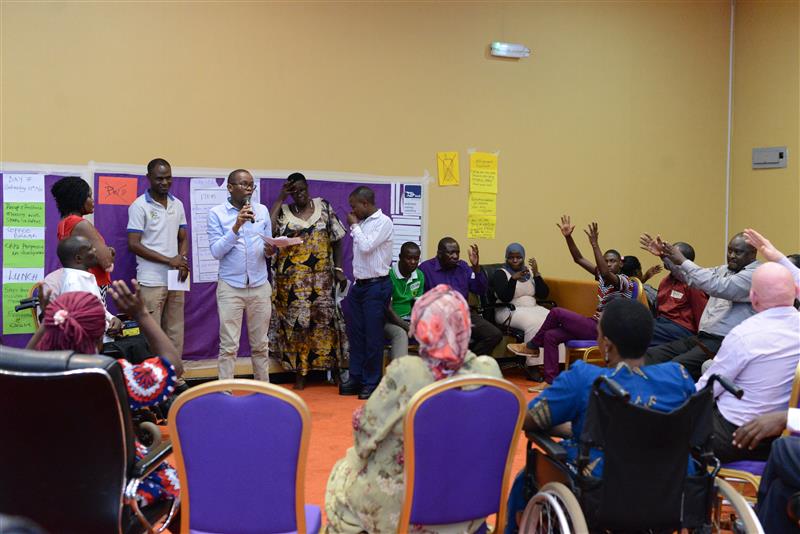Partnership and feedback
Blog | October 25, 2022
David Bainbridge, CBM Global’s Executive Director reflects on what partnership means for CBM Global and the importance of our partner feedback exercise.
How was our service today?
In today’s everyday routines there seems to be no shortage of opportunities to give feedback about a service that has been provided. I come across invitations on virtually a daily basis:
- Regular email invitations to complete a customer satisfaction survey “please rate your overall level of satisfaction with the service provided, would you recommend the service to a friend?” This could be after booking a flight with a particular airline, buying an insurance cover, staying at a hotel etc.
- Suggestions boxes in airport terminals where written feedback can be submitted.
- Simple feedback systems using ‘smiley buttons’ at airport immigration, restroom facilities, the list is endless!

With this abundance of opportunities to give my feedback I find myself asking a fundamental question: what happens to my feedback and does it make a difference? It is one thing to reach out and invite feedback and quite another to demonstrate that the feedback has been considered and will lead to action. Indeed, if I lose confidence that the feedback is going to be taken seriously I’m much less likely to bother giving feedback the next time I am asked!
Individual feedback or comprehensive feedback
I had an encouraging conversation earlier this year with a leader of one of CBM Global’s partner organisations in Kenya. We had spent the day together on a project visit and at the end of the day I asked him what his experience was of the partnership between our two organisations and in particular was there anything we could do as CBM Global to improve? He went on to explain that he had already observed a step change in the approach of CBM Global staff towards project planning, explaining “before it used to be CBM driven. We were told ‘here is a project take it’. It used to be a push approach, but now you ask us for our ideas, now it is consultative”. I was deeply encouraged that our drive to living out our partnership principles in an authentic way was already leading to tangible change. But was this the case for all of our partners around the world or does their experience vary?
Partnership in CBM Global
These considerations were very much in my mind when we decided to launch our first comprehensive partner survey. I wanted to be sure that our partners could give their feedback in an open and safe way without fear of any repercussions and I wanted to be sure that we would share with our partners the improvements that we then identified, along with periodic progress reports over time.
Partnership is at the heart of how we work as a Federation, as one of our core values: “We commit to partnership, listening and learning together.” We know that an open attitude to receiving feedback and complaints is paramount to our ability to improve as an organisation, to facilitate learning, and to break down donor/recipient power dynamics – an issue I’ve been acutely aware of throughout my career.
The feedback exercise
The CBM Global 2022 partner feedback exercise was a hugely important undertaking for the Federation. It builds upon the earlier listening exercise we arranged with organisations of persons with disabilities (OPDs) which includes a set of specific improvement commitments in how we partner with OPDs. In this broader partner feedback exercise, we received input from partner organisations across 15 countries: through 55 online survey responses and anonymous focus interviews with ten randomly selected partners. This has provided a very rich and varied set of feedback and I am so thankful to each of our partners for the time they took to share their views so that we can learn and grow.
For anyone considering undertaking a survey of this nature, I recommend the use of the feedback data analysis technique practiced by Keystone Accountability, called Net Performance Analysis (NPA). This uses a 5-point scale and distinguishes between three respondent profiles:
1. The ‘promotors’, who give a rating of 5. These partners are the ‘champions’, who are generally positive about the partnership relationship and will likely recommend the organisation to others.
2. The ‘passives’, who give a rating of 4, which is considered average. These partners have no major concerns, they are ‘passively satisfied’, but they are also rather neutral about the partnership
3. The ‘detractors’, who give a rating of 1-3. These partners have fairly negative perceptions of their engagement.
Under the NPA technique, a ‘Net Promotor Score’ (NPS) is calculated, being the % of ‘promotors’ minus the % of ‘detractors’. We found that this approach provided some very helpful insights.


I am so thankful to each of our partners for the time they took to share their views so that we can learn and grow
Responding to the feedback received
So back to my big question what happens to my feedback and does it make a difference? We have reviewed all of the feedback we received from our partners:
- We have taken note of what we are doing well that we need to continue. Positive feedback includes the way CBM Global is living out our partnership commitments, with partners commenting favourably on the quality of relationships and the responsiveness and flexibility of staff.
- We have drawn up an action plan where improvements are needed, both short term and long term. For example, our partners are keen to receive more non-financial support, such as assisting in developing partners’ own policies and procedures. There is work to be done in simplifying our partner assessment process and investing more in organizational strengthening work. Our partners also appreciate joint learning opportunities and would like to see more of them.
Summaries of all of the actions we are taking are included in the Partner Feedback Exercise Report. We look forward to providing progress reports to our partners as we pursue these actions and continue our partnership journey together.
https://cbm-global.org/blog/partnership-and-feedback
Related News

What our partners told us and how it shapes our future
One of our strategic priorities as a Federation is to shift power in partnerships....

Breaking Stigma, Building Hope: Suicide Prevention in Nepal
After losing her young daughter to suicide, Maya developed a mental health condition while...

Accessibility, reasonable accommodation, and budgeting for inclusion
Budgeting for inclusion, accessibility, and reasonable accommodation must be...
